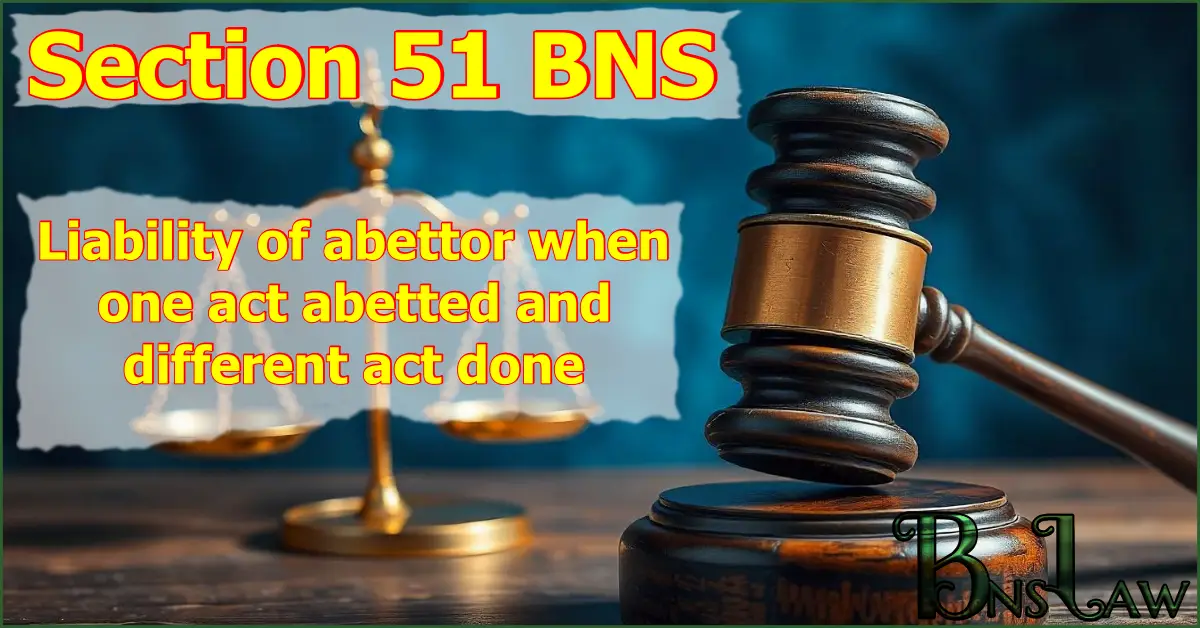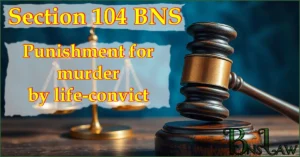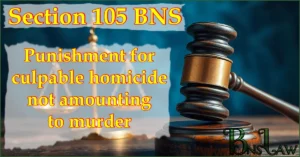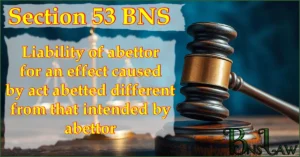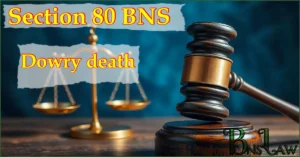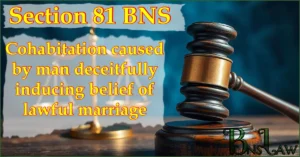Section 51 BNS | BNS 51 | BNS Section 51
When an act is abetted and a different act is done, the abettor is liable for the act done, in the same manner and to the same extent as if he had directly abetted it:
Provided that the act done was a probable consequence of the abetment, and was committed under the influence of the instigation, or with the aid or in pursuance of the conspiracy which constituted the abetment.
(a) A instigates a child to put poison into the food of Z, and gives him poison for that purpose. The child, in consequence of the instigation, by mistake puts the poison into the food of Y, which is by the side of that of Z. Here, if the child was acting under the influence of A’s instigation, and the act done was under the circumstances a probable consequence of the abetment, A is liable in the same manner and to the same extent as if he had instigated the child to put the poison into the food of Y.
(b) A instigates B to burn Z’s house, B sets fire to the house and at the same time commits theft of property there. A, though guilty of abetting the burning of the house, is not guilty of abetting the theft; for the theft was a distinct act, and not a probable consequence of the burning.
(c) A instigates B and C to break into an inhabited house at midnight for the purpose of robbery, and provides them with arms for that purpose. B and C break into the house, and being resisted by Z, one of the inmates, murder Z. Here, if that murder was the probable consequence of the abetment, A is liable to the punishment provided for murder.
READ OTHER SECTIONS OF CHAPTER IV — OF ABETMENT, CRIMINAL CONSPIRACY AND ATTEMPT
FAQs of BNS Section 51
-
51 BNS punishment and fine
Same as for offence intended to be abetted.
-
51 BNS cognizable or not
According as offence abetted is cognizable or non-cognizable.
-
51 BNS bailable or not
According as offence abetted is bailable or non-bailable.
-
51 BNS trial court
Court by which offence abetted is triable.
Important Points
- Cognizable Offences: These are offences where a police officer can arrest a person without a warrant.
- Non-Cognizable Offences: These are offences where a police officer cannot arrest a person without a warrant.
- Bailable Offences: These are offences where the accused can get bail from the police station itself. All bailable offences are listed in the First Schedule of the Bharatiya Nagarik Suraksha Sanhita (BNSS).
- Non-Bailable Offences: Offences in which bail is not granted directly from the police station but after hearing the case in the court, the judge decides when bail will be granted. All non-bailable offences are listed in the first schedule of the Bharatiya Nagarik Suraksha Sanhita (BNSS).
- In the above FAQ, “trial court” means the court that has jurisdiction to try the offence.
- In the above FAQ, the expression “Magistrate of the first class” and “Any Magistrate” does not include Executive Magistrates.
Read other Sections of the BNS
Reference Link: New Criminal Laws (BNS), Ministry of Home Affairs

